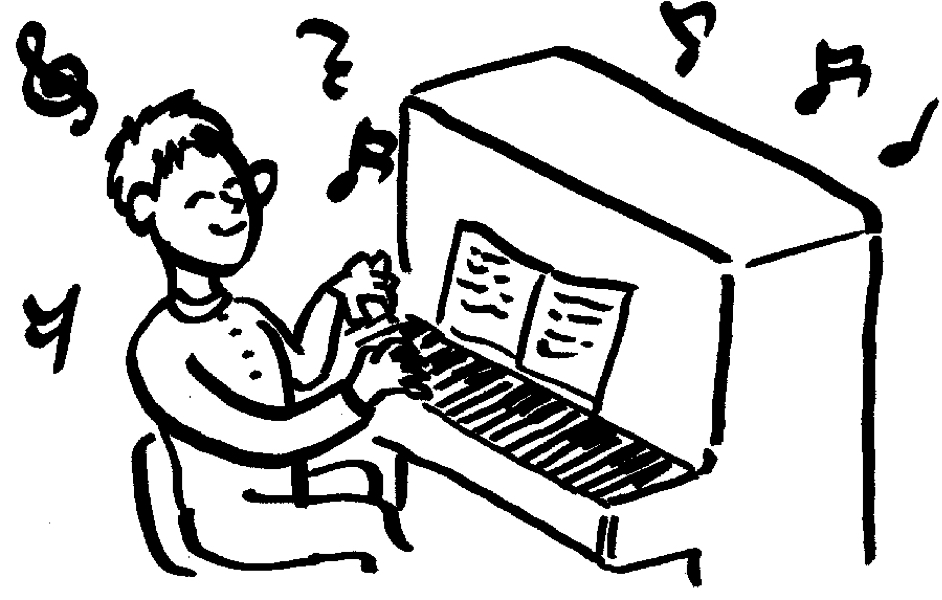How to practise the piano
Filed in: Teaching and Learning
This page is a note about how I teach students how to practise. What areas they should include and what technique can help them improve pieces they are learning.
I have posted it as a matter of public service. Usual disclaimers about no responsibility taken if it doesn't help you, or makes matters worse!
Why do you practice at all?
There is no point in time-serving. At the start of the practice session, the student should ask themselves what they are trying to achieve. Five minutes spent in that way, is far better than 30 minutes mindlessly playing through pieces.
It would be best to look on the lessons as a kind of 'check-up'. The work of learning music is done between lessons, not at them. Practise regularly, preferably daily.
What should you practise?
Each time there should be a variety of different activities:
- posture;
- warm-up exercises;
- technical work / scales;
- pieces at different stages of preparation - some new, some well-known.
Be purposeful, not simply dutiful: for example, to get a difficult bit right,
4xS practice technique
Here is my fourfold strategy of the Ss for successful practice:
Separately
- Practise hands separately at first.
Slowly
- Practise slowly - certainly when you put the hands back together. Music for tortoises! (Quite often in lessons, as we practise practising, I will say "No! Slower than that!" before the student has even played a note. They confuse practice with performance "You aren't trying to perform this, you are trying to learn it!" is one of my favourite sayings.
Steadily
- Play steadily - in time: not playing the easy bits fast, and then slowing down for the difficult bits!
Small chunks
Practice small sections - a bar perhaps, or even half-a-bar. There isn't any use in just playing it through badly from the beginning each time
A motto: Repeticio est mater studiorum. (Repetition is the mother of learning.) Another motto: An amateur practises until they get something right, the professional pracises until they never get it wrong.
Some science: the brain learns things. It is very good at learning things. But it doesn't seem very good at discriminating between what is right and wrong - if you play wrong notes or rhythms, the brain will learn these. The best practice strategy is to not play wrong notes. That's why you have to repeat the small chunks even when they are right. In fact, you must repeat them especially when they are right.
A good motto to conclude
And remember:
The more you practise the luckier you get










